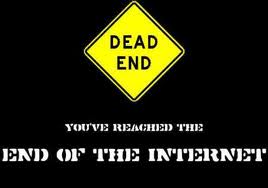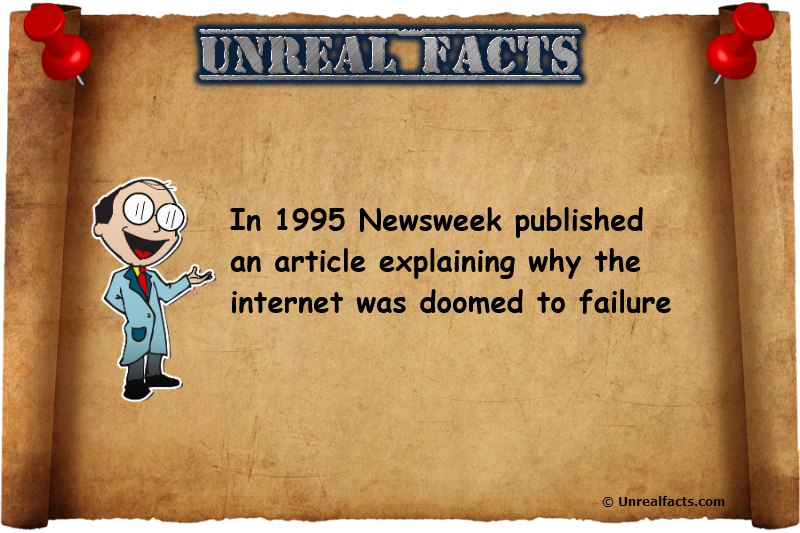Talk about being on the wrong side of history. There was a 1995 Newsweek internet article explaining why the internet was doomed to failure. They could hardly be more wrong in hindsight, but the signs should have been there. Read on to see just how wrong the prediction was.
The internet. It has become a part of modern day life. It is with us practically everywhere we go. We can access it from our phones, personal computers, and now even glasses and watches. It has completely changed the way we live our lives. We shop, bank, communicate, socialize, navigate with it, and it even has the power to change the course of the world. But life hasn’t always been this way, and in fact Newsweek even published an article as recently as 1995 explaining why the internet would fail. It’s still there today and you can read the article in our source below. What seems so ironic about the story is that they were ridiculing the futurists claims of what the internet is currently doing today.
The contents of the 1995 Newsweek internet article
Published on February 26, 1995, at 7:00 PM, and online of all places, by Clifford Stoll, the article made light fun of the claims of what the internet could achieve, and then went on the explain exactly why it would fail. The author wrote “Visionaries see a future of telecommuting workers, interactive libraries and multimedia classrooms… Commerce and business will shift from offices and malls to networks and modems. And the freedom of digital networks will make government more democratic…. Baloney.” The story then went on to explain that the internet could never replace newspapers and competent teachers, and that no network will ever change the way government works. Little did the author know that the internet would soon be doing exactly what he said it would not be doing. Children in remote communities learn via the internet. Online news is beginning to spell the end of traditional print newspapers. Thanks to social networks the way governments run has now changed.
The article takes aim at the primitive search engines available at the time, and their complete uselessness. In the 1995 article Newsweek even said of the internet that it would be unlikely that people would download books from the internet. Then there’s social networks. The author didn’t believe that online communities could or would flourish. Man was he in for a shock. Everything he said wouldn’t happen, has.
It seems surprising today that someone writing a piece about technology could be so close minded to the idea of its future potential. Even though 1995 was relatively recent, it must be remembered that at that stage the internet was still a primitive place. Most people connected to it with a dial up modem, and there were no websites such as Google, Facebook, Twitter, YouTube, Ebay and Amazon, just to name a few.
Oh, how the world has changed, and for the better.
If you found this article interesting you may also like:
- Mark Zuckerberg said “I don’t know why they trust me.”
- The first item purchased on the internet was marijuana
- Whitehouse.com was a Adult site









